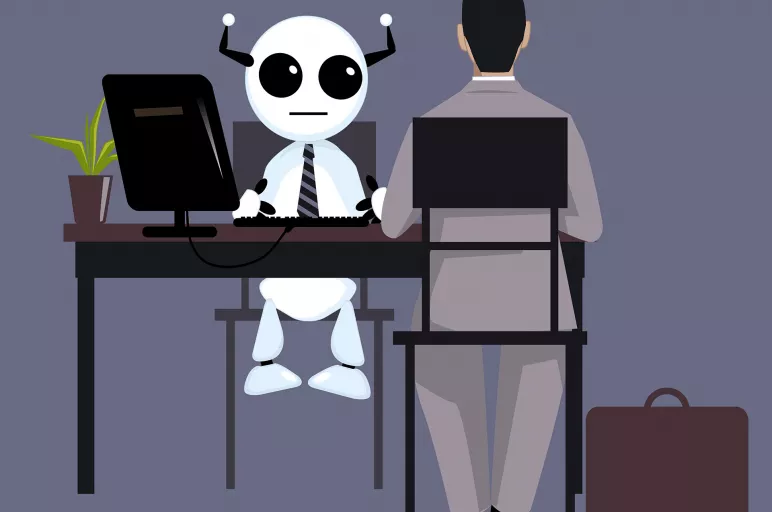
Artificial Intelligence in the Staffing Industry
April 03, 2017 | Professional Services
The ever-growing pace of technology advancement brings us closer each day to a new industrial revolution. With many awe-inspiring breakthroughs, the biggest of them all is artificial intelligence (AI). The consensus is that AI is here to stay and will have a lasting effect on our daily lives. The continued advancement of AI brings with it the capability of replacing any human activity comprised of repetitive actions. This is a boon for many industries as it reduces labor, increases productivity, improves quality and provides speedy deliveries. 3D printing in the manufacturing industry is one such example. Also, with these advancements, the cost of computing is set to decrease, which will result in many human jobs becoming computerized. Already, many foresighted HR departments in the staffing industry are aligning themselves with automated tools to help them improve recruiting efficiency. The correct virtual assistant can provide a recruiter with meaningful candidate profiles after sifting through a lot of unstructured data like outdated information, real-time monitoring of performance and behavior, and much more.
But, while AI may take away a few jobs from humans, it will also provide various new fields for employment. The importance of staffing agencies will also come back into play as everyone looks to them to provide reinforcements in the form of new skills. These new skills will mostly be related to attributes like common sense, real intelligence and real empathy. Recruiters are not naïve and understand the threat AI will bring to them. Instead of rallying against it, they are accepting and moving forward. Many agencies use a number of automated technologies such as HRMS (Human Resource Management Software), CV parsing software and workforce management systems such as TempBuddy to help them improve recruiting efficiency.
Referring to Frey and Osborne’s The Future of Employment: How Susceptible are Jobs to Computerisation (2013), which analysed 702 US occupations and ranked them per their risk of being computerized, they considered three key skill attributes: perception and manipulation, social intelligence and creative intelligence. The outcome suggested the depletion of lower skilled and repetitive jobs. But with continued advancements in robotics, one would be naïve not to acknowledge that many “office jobs” will also be affected. This will give rise to a new norm where either the individual or the company must ensure continued learning and exposure to emerging technologies to maintain competition and employability. This can also result in a contingent workforce, who already follow this norm, to become more sought after than their permanent counterparts.
Rachael Moss, Marketing Director of TempBuddy, believes that whoever identifies the new skills and roles early on will hold the edge over all others by updating their talent pool and increasing their market dominance. To keep pace with the emerging AI technologies, the need of the hour is for HR managers to continuously align themselves with the latest AI offerings. A number of AIs like Watson and Maya can quickly perform duties while surfing through large amounts of data; for example, scheduling interviews after analyzing and prioritizing requisitions regarding the need and difficulty of filling certain positions and the success rate of the candidates for the same. They can also reach out to candidates via social media 24x7 to answer basic questions like jobs, availability and company culture. Further, many current software programs can now read a candidate’s facial expressions and vocal tones, which helps measure the candidate’s Emotional Intelligence - a necessary requirement from most of the companies nowadays. But even after all this, there still exists the need for humans to ultimately make the best decision for their clients by critically analyzing the data themselves.
All in all, recruitment agencies should become open to change and eager to educate themselves about the possibilities offered by emerging technologies, and are ready to experiment integrating AI alongside humans who will continue to be employed throughout the recruitment industry.



